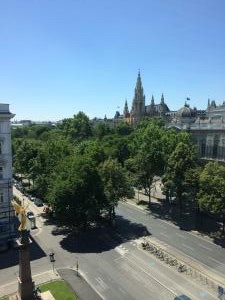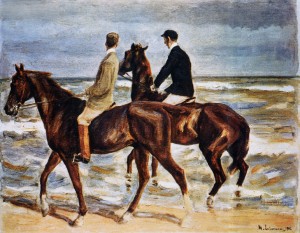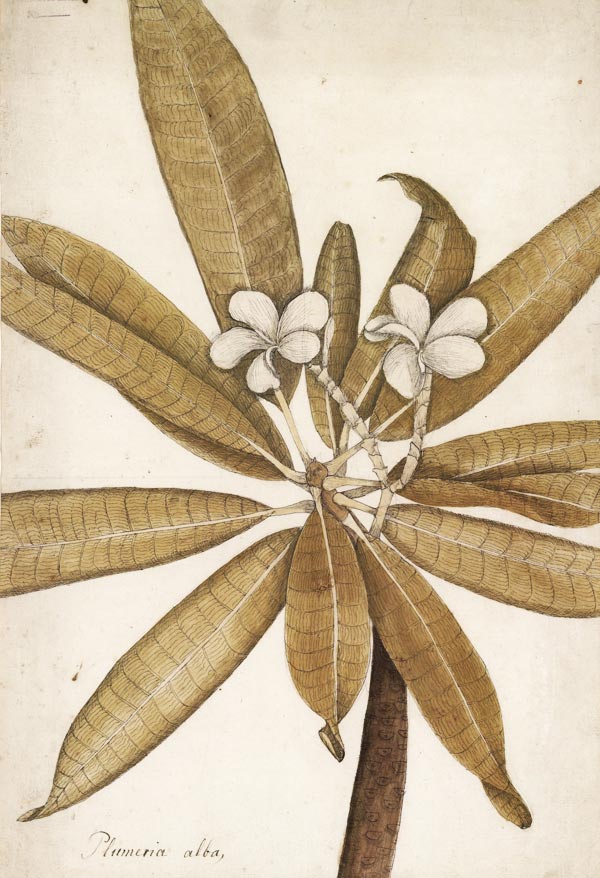Germany has proposed a revision to its cultural protection legislation that would further restrict exports of objects more than 50 years old. While worries that it is the equivalent to state expropriation are overblown, it does indicate a mindset that is in many ways incompatible with the modern art market—even if it is only an effort to harmonize German and EU law. The struggles of Germany’s efforts to keep pace with other centers of art trade may only be compounded if this becomes law.
European Cultural Protection Laws and Export Licenses—the Atlantic Gulf Widens
Topics: Legislation, Frankfurter Allgemeine Zeitung, cultural property, Roman antiquity, Germany, Cultural Protection Laws, England, Joshua Reynolds, European, Rome, 5th Amendment, Bundesländer, Italy, Monika Grütters, regulatory taking
The Woman in Gold: Why the Altmann Case Matters
The release last week of The Woman in Gold, the feature film adaptation of The Lady in Gold by Anne Marie O’Connor, starring Helen Mirren and Ryan Reynolds as Maria Altmann and her attorney E. Randol Schoenberg, respectively, as well as Tatiana Maslany as the younger Altmann and Daniel Brühl as Austrian journalist Hubertus Czernin, is an important opportunity to reflect on the legal importance of the case. Even today, the case provides lessons about the way some victims are still treated, and how one individual can make sure the past is never forgotten. The looting of Jewish art collections was a concerted effort whose prominence should never be forgotten. And perhaps even more, it robs those who did survive of the dignity of remembering their family experiences. Consider: the next time you gather with your extended family, look around the room. Pick something that you’re accustomed to seeing when the family meets. Now, imagine it had been stolen or surrendered under duress, and was hanging on the wall of a national collection that denied it had been taken. How would you feel? This is the dilemma faced by many claimants, and it is precisely why Altmann matters so much.
Topics: Maria Altmann, The Lady in Gold, Adele Bloch-Bauer, The Woman in Gold, Daniel Brühl, Germany, Nazi-looted art, Academy of Fine Arts, Foreign Sovereign Immunities Act, Hitler, Tatiana Maslany, Anne Marie O’Connor, Supreme Court, A Few Good Men, Belvedere, E. Randol Schoenberg, World Jewish Congress, Stiftung Preussischer Kulturbesitz, Ryan Reynolds, FSIA, expropriation exception”, Restitution, Neue Galerie, World War II, Foreign Sovereign Immunities, Switzerland, Ferdinand Bloch-Bauer, Helen Mirren, Museums, Fritz Altmann, Gustav Klimt, Vienna, Welfenschatz, Hubertus Czernin, Ronald Lauder, Austrian National Gallery
Gurlitt Bequest to Kunstmuseum Bern is Upheld, Little Else Resolved
A Munich court ruled last week that the will written by Cornelius Gurlitt in the last days of his life that named the Kunstmuseum Bern (an institution with which he had no relationship whatsoever) was valid, rejecting a challenge by Gurlitt’s cousin Uta Werner. It is emblematic of the strange case of Gurlitt and of German’s bizarre handling of the affair, that this decision resolves very few of the pending issues.
Topics: Conny Leaks, Focus, Carl Spitzweg, Hildebrand Gurlitt, Potemkin Village, Cornelius Gurlitt, Breslau, Henri Hinrichsen, German Minister of Culture, Uta Werner, Gurlitt Task Force, Max Liebermann, Germany, Nazi-looted art, Gurlitt Collection, Seated Woman, Two Riders on the Beach, Entartete Kunst, Salzburg, Gurlitt, NS Raubkunst, Seuddeutsche Zeitung, Restitution, Catrin Lorch, Bavaria, David Toren, World War II, degenerate art, beschlagnahmte Kunst, Austria, Kunstmuseum Bern, Monika Grütters, Martha Hinrichsen, David Friedmann, Henri Matisse, Jörg Häntzschel, Paul Rosenberg
Gurlitt Will Contest Won’t be Resolved Anytime Soon, Will Likely Delay Restitution
Schweizer Radio und Fernsehen (SRF) reported yesterday that the challenge by Uta Werner to her cousin Cornelius Gurlitt’s will may extend late into this year. Werner has petitioned the court in Munich to set aside the last will and testament that named the Kunstmuseum in Bern as Gurlitt’s sole heir and beneficiary of the 1,280 works of art found in his apartment in 2012, as well as those in Salzburg. In November, the Kunstmuseum, the Bavarian government, and the German government announced to great fanfare but little analysis that the museum would accept the bequest and work with the Gurlitt Task Force to sort through objects with questionable provenance related to Hildebrand Gurlitt’s role as an approved dealer of “degenerate art” under the Nazis, and the concern that some of the objects may be Nazi-looted art.
Topics: Frankfurter Allgemeine Zeitung, Cornelius Gurlitt, Breslau, Henri Hinrichsen, Stefan Koldehoff, Die Bilder Sind Unter Uns Das Geschäft mit der NS-, Zwei Reiter am Strand, Max Liebermann, Germany, Fall Gurlitt, Nazi-looted art, Gurlitt Collection, SRF, Hildebrand Gurltt, will contest, Gurlitt, Restitution, David Toren, World War II, Task Force, Die Zeit, Schweizer Radio und Fernsehen, Kunstmuseum Bern, Martha Hinrichsen, Raubkunst, The Pictures Are Under Us Business in Nazi-Looted, last will and testament
10, 9, 8…the Biggest Art Law Report Stories of 2014 and a Look Ahead
As the ball teeters above Times Square, and the Glühwein begins to mull on the Art Law Report stove (don’t forget the cinnamon!), a gimmicky but apropos act of reflection is to look back at the biggest stories of 2014, both in art law generally and for yours truly and Sullivan & Worcester LLP. In highly subjective, unverifiable, and immediately criticizeable order, here they are. Thanks as always for reading, and best wishes for in interesting, prosperous New Year. If you agree, disagree, or otherwise, please continue to stay in touch and carry the conversation forward.
Topics: Comedy Central, Deaccession, Schwabinger Kunstfund, Charitable Foundations, National Gallery of Art, Knoedler, Cornelius Gurlitt, Blogs, authentication, authenticity, parody, William Corcoran, Moral Rights, Above the Law, Germany, George Washington University, Glühwein, Nazi-looted art, Gurlitt Collection, Norton Simon, Graffiti Art, Superior Court, Cy Pres, Washington DC, VARA, Detroit Institute of Arts, Bankruptcy, Corcoran College of Art + Design, Dumb Starbucks, Preemption, Asher Edelman, DIA, Restitution, Marei Von Saher, Artmentum GmbH, Bavaria, Sullivan & Worcester LLP, World War II, Copyright, Times Square, Art Fairs, Kunstmuseum Bern, Corcoran Gallery, Ninth Circuit Court of Appeals, Museums, Raubkunst, Detroit Bankruptcy, Fair Use, Münchner Kunstfund, Foreign Cultural Exchange Jurisdictional Immunity, Graffiti, Civil Forfeiture, Art Law Report
Toren Amends Complaint Against Bavaria Over Liebermann Seized from Gurlitt, Spotlights Task Force Recommendation of Restitution in Support of Bailment Theory
Two weeks ago, the Federal Republic of Germany and Bavaria moved to dismiss the restitution claims brought by David Toren over ownership of Two Riders on the Beach (Zwei Ritter am Strand) by the German painter Max Liebermann. Toren’s uncle David Friedmann owned the painting in Breslau before he was targeted for his collection and it was stolen. Toren had not seen it since adolescence. The painting is further notable for two (related) reasons: it is among the 1,280 works of art found in Cornelius Gurlitt’s apartment in 2012, and it is one of only two that the Gurlitt Task Force has recommended be restituted (to Toren). As we noted at the time of the motion, Germany’s tactics seemed odd; Bavaria has committed to complying with the Task Force’s recommendations, and contesting this case seems to make little sense. The likeliest reason, in our view, is to try to make some jurisdictional law that will weaken other potential claimants to the Gurlitt trove.
Topics: Schwabinger Kunstfund, Hildebrand Gurlitt, Cornelius Gurlitt, Breslau, Max Liebermann, Germany, Silesia, Gurlitt Collection, Foreign Sovereign Immunities Act, bailment, Entartete Kunst, FSIA, Restitution, Bavaria, David Toren, Zwei Ritter am Strand, Free State of Bavaria, 28 U.S.C. § 1605(a)(2), Looted Art, World War II, Foreign Sovereign Immunities, Altmann v. Republic of Austria, Freistaat Bayern, Kunstmuseum Bern, Riders on the Beach, Federal Republic of Germany, Raubkunst, David Friedmann, Münchner Kunstfund
Bavaria and Germany Move to Dismiss Gurlitt Litigation, But Raise Questions About Why They Are Resisting a Lawsuit Over Painting that Task Force Recommended They Restitute to David Toren
To date, only one lawsuit has been filed in the United States related to the seizure from Cornelius Gurlitt’s apartment of some 1,280 works of art, a story that broke a year ago with the concern about the objects’ Nazi-looting connections via his father Hildebrand Gurlitt (the view here last winter was that the longer Germany failed to address the situation comprehensively, the more likely such U.S. litigation became). That lawsuit, brought by David Toren, seeks the return of Two Riders on the Beach (Zwei Ritter am Strand), by Max Liebermann. Germany and Bavaria moved to dismiss the case yesterday, which is particularly puzzling given that among the very few determinations made by the Gurlitt Task Force (in August), it is that the Liebermann should be returned. The cynical view is that they are looking to forestall future claims, but it is past time for the painting to be returned.
Topics: Schwabinger Kunstfund, Hildebrand Gurlitt, Cornelius Gurlitt, Breslau, Max Liebermann, Germany, Silesia, Gurlitt Collection, Foreign Sovereign Immunities Act, bailment, Entartete Kunst, FSIA, Restitution, Bavaria, David Toren, Zwei Ritter am Meer, Free State of Bavaria, 28 U.S.C. § 1605(a)(2), Looted Art, World War II, Altmann v. Republic of Austria, Freistaat Bayern, Kunstmuseum Bern, Riders on the Beach, Federal Republic of Germany, Raubkunst, David Friedmann, Münchner Kunstfund
Germany Announces "Center for Cultural Property Losses": Real Progress or Window Dressing?
After numerous intimations by German Minister of Culture Monika Grütters, the German federal cabinet announced on Wednesday the official formation of the German Center for Cultural Property Losses (Deutsches Zentrum Kulturgutverluste). Citing its “awareness of the special responsibility for the reworking of Nazi art theft,” the ruling CDU coalition issued this statement (my translation):
Topics: Schwabinger Kunstfund, Hildebrand Gurlitt, Cornelius Gurlitt, Deutsches Zentrum Kulturgutverluste, Germany, Minister of Culture Monika Grütters, Nazi-looted art, Gurlitt Collection, Lex Gurlitt, Koordinierungsstelle für Lost Art in Magdeburg, Magdeburg, enteignete Kunst, Gurlitt, NS Raubkunst, Restitution, Task Force, Bundesländer, Lost Art, www.lostart.de, Limbach Commission, Center for Cultural Property Losses
Vienna Natural History Museum Restitutes Botanical Drawings to Nazi Victims' Heirs, Acknowledges the Too-Often-Ignored Reality of Persecution and Coerced Sales
Vienna’s Natural History Museum (Naturhistorisches Museum) has restituted 177 botanical drawings and prints to the heirs of Dr. Ernst Moritz Kronfeld. The restitution, while somewhat delayed following a 2011 recommendation by Austria’s Advisory Council under the country’s Law for the Restitution of Artworks from the Austrian National Museums (Bundesgesetz über die Rückgabe von Kunstgegenstände aus den Österreichischen Bundesmuseen), highlights the increasing sophistication of that Advisory Council, particularly compared to recent steps backward by the Limbach Commission in Germany. Austria, once a lightening rod for criticism about confronting wartime and Nazi provenance issues, returned these drawings because of the clear problems with trying to portray any 1941 conveyance by a Viennese Jew as an arms’ length transaction—even without direct evidence of coercion. Just as importantly, it brushed away the defense that the drawings had been acquired in good faith as an excuse to continued possession, a dramatic change from the perspective usually taken by civil law countries.
Topics: Theresienstadt, Lvov, Nationalbibliothek, Galicia, Law for the Restitution of Artworks from the Austr, Germany, Nuremberg, Nazi Victims, Treblinka, Dr. Rudolf Engel, Naturhistorisches Museum, Henry David Thoreau, Hermann Goring, Hitler Youth, Mario Lanzer, Gauleiter, Dr. Ernst Moritz Kronfeld, National Library, Portrait of Amalie Zuckerkandl, Bundesgesetz über die Rückgabe von Kunstgegenständ, Restitution, Clara Levy, Hapsburg, Luxembourg, Vienna Natural History Museum, Ryk van der Schot, Empress Maria Theresia, World War II, The Three Graces, Franz Stefan von Lothringen, Lemberg, Ukraine, Nikolaus Joseph von Jacquinn, Rosalia Kronfeld, Austro-Hungarian empire, Drei Grazien, Lovis Corinth, Museums, Israeli Cultural Society, Austria’s Advisory Council, Gustav Klimt, Schönbrunn, Vienna, Anschluss, Welfenschatz, Baldur von Schirach, Limbach Commission
Glass Half Full or Half Empty? Detailed Report Published on Worldwide Efforts to Restitute Nazi-Looted Art Since the 1998 Washington Conference
After the 1998 Washington Conference on Holocaust Era Assets and the eponymous Washington Conference Principles on Nazi-Stolen Art that came out of it, it is hardly surprising that a recurring theme has been to assess the progress of those nations that participated and signed on. Equally unsurprisingly, those assessments are usually more anecdotal than empirical, and usually arise out of a particular case or cases in the context of that country’s response.
Topics: Graham Bowley, Macedonia, Netherlands, Terezin Declaration, Mussolini, Latvia, Dr. Wesley A. Fisher, Hungary, ICOM, Bulgaria, Commission for the Compensation of Victims of Spol, Germany, Bavarian Minister of Culture, Nazi-looted art, Die Welt, Belarus, Lex Gurlitt, Washington Conference on Holocaust Era Assets, France, Dr. Ruth Weinberger, Romania, Baron Mor Lipot Herzog, Winfried Bausbeck, Belgium, Slovakia, Vichy, World Jewish Restitution Organization, Bundesrat, Washington Conference Principles on Nazi-Stolen Ar, Gurlitt, WJRO, NS Raubkunst, Restitution, International Council of Museums, Norway, United States, Luxembourg, Looted Art, World War II, St. Petersburg, Poland, beschlagnahmte Kunst, Ukraine, Austria, Serbia, Conference on Jewish Material Claims Against Germa, Italy, Bosnia, New York Times, Monika Grütters, Slovenia, Estonia, Museum and Politics Conference, National Gallery, Museum of Fine Arts, entzogogene Kunst, Czech Republic





